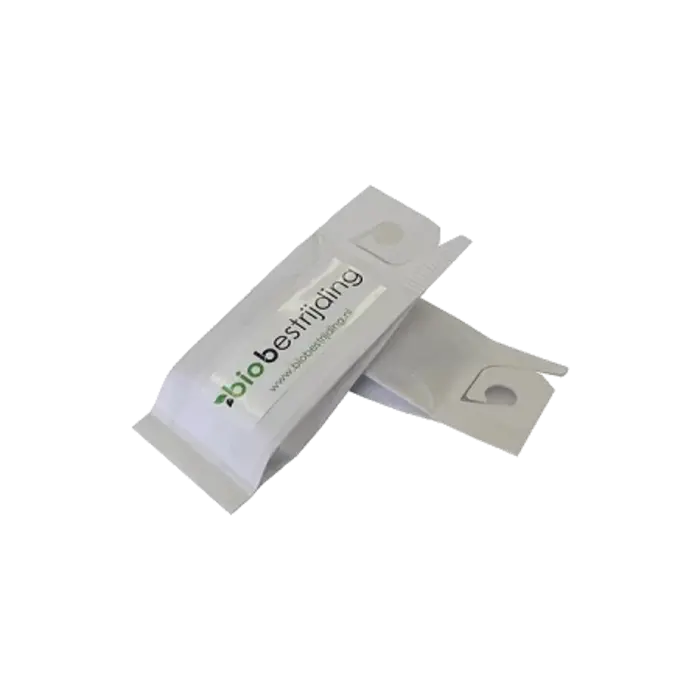BioBestrijding | Predatory Beetle Adult (Ladybug) against Scale Insects
BioBestrijding Predatory Beetle Adult ladybug against scale insects
Attention! This product consists of live animals and is only available for order in the Netherlands or Belgium. If you order more than just Bio Fight, there will be an additional charge of € 7.95 due to dropshipping from the supplier.
The Rhyzobius lophanthae is a small ladybug (predatory beetle) and is known to control scale insects. Originally from South Australia, Rhyzobius lophanthae is used by gardeners all over the world as a natural enemy of scale insects. This predatory beetle is about 2mm long and reddish brown in color with hairs all over the body. The wings are black with a bronze sheen. The larvae, on the other hand, are gray in color.
Both adults and larvae of Rhyzobius lophanthae feed on scale insects, preferably armored insects such as scale insects. Known to control the orchid scale insect, rose scale insect, oleander scale insect and cactus scale insect. In addition to the scale insect, they also feed on mealybugs. The young Rhyzobius ladybugs crawl under the protective shield of their prey and feed there so that the scale insect weakens and dies. The young larvae mainly target the smaller stages of the scale insect. The adult predatory beetles eat both the large and small scale aphids. When a scale insect is eaten, it can be seen by irregular holes on and around the edges of the shell.
Quantity required
- We recommend 5 predatory beetles per plant.
Temperature
Rhyzobius lophanthae feels at home at warm temperatures and is especially active at 22 to 26 degrees. These predatory beetles cannot survive cold temperatures, therefore they are not sent at temperatures below 5 degrees. At temperatures below 8 degrees they are inactive. Also at temperatures above 32 degrees they will soon stop looking for prey.
Release instructions
- Open the package and carefully pull apart the strips of paper containing the beetles and larvae and distribute them over the plants.
- After receipt of the predatory beetles, introduce them as soon as possible.
- Preferably in the evening so they do not immediately seek the light and fly away.
Storage advice
Biological beneficials are living animals and have a (very) short life expectancy. Storage can affect the quality and is only possible under the conditions mentioned below.
- Storage life: 1-2 days
- Storage temperature: 8-10C
- Store in the dark and flat



